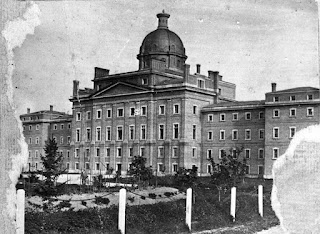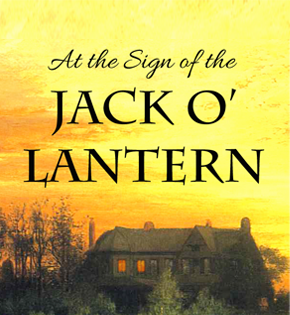March 15, 1806
We were visited this afternoon, in a canoe 4 feet 2 inches wide, by Delashelwilt, a Chinook chief, his wife, and six women of his nation, which the Old Bawd, his wife, had brought for market. This was the same party which had communicated the venereal to several of our party in November last, and of which they have fully recovered. I therefore gave the men a particular charge with respect to them, which they promised me to observe.
-- Captain William Clark, from The Journals of Lewis and Clark
March 16th, 1620
And whilst we were busied here about, we were interrupted again, for there presented himself a savage, which caused an alarm. He very boldly came all alone among the houses and straight towards the rendezvous. We intercepted him there, not suffering him go in, as undoubtedly he would out of his boldness. He saluted us in English and bade us welcome. … He told us the place where we now live is called Patuxet. About four years ago all the inhabitants died of an extraordinary plague. There is neither man, woman, nor child remaining, as indeed we have found none, so that there is none to hinder our possession or to lay claim unto it.
-- William Bradford of the Mayflower Company, from Homes in the Wilderness: A Pilgrim’s Journal of Plymouth Plantation in 1620, edited by Margaret Wise Brown
I must write something of myself today. I can look back and see plainly all my journey here. The day may come when I shall be laid away in the grave, and my boys—the dear boys I have loved so well—will look over my trunk and find this manuscript; they will then perhaps believe I am not crazy. I know Dr. Steeves tells them I am a lunatic yet. They will weep over this, as they think of the mother they have left here to die among strangers. It would be happiness to die surrounded by my friends, to be able to tell them they have only to live well that they may die well. To be true to ourselves and to our fellows, is all the good we need. That I have always striven to do, does now my spirit feed.
I have been so near the grave, the border land of heaven. I heard angels' voices; they talked with me even as they did with John on the Isle of Patmos, when they said to him, "Worship God who sent me."
-- Mary Huestis Pengilly, from Diary Written in the Provincial Lunatic Asylum
March 22, 1794
His (M. d’Arblay) greatest passion is for transplanting. Everything we possess he moves from one end of the garden to another, to produce better effects. Roses take place of jessamines, jessamines of honeysuckles, and honeysuckles of lilacs, till they have all danced round as far as the space allows; but whether the effect may not be a general mortality, summer only can determine.
Such is our horticultural history. But I must not omit that we have had for one week cabbages from our own cultivation every day! O, you have no idea how sweet they tasted! We agreed they had a freshness and a gout we had never met with before. We had them for too short a time to grow tired of them, because, as I have already hinted, they were beginning to run to seed before we knew they were eatable. . .
-- Fanny Burney, from The Diary and Letters of Madame D'Arblay — Volume 3
POSTED BY: Audra








_by_Edward_Francisco_Burney.jpg)
























